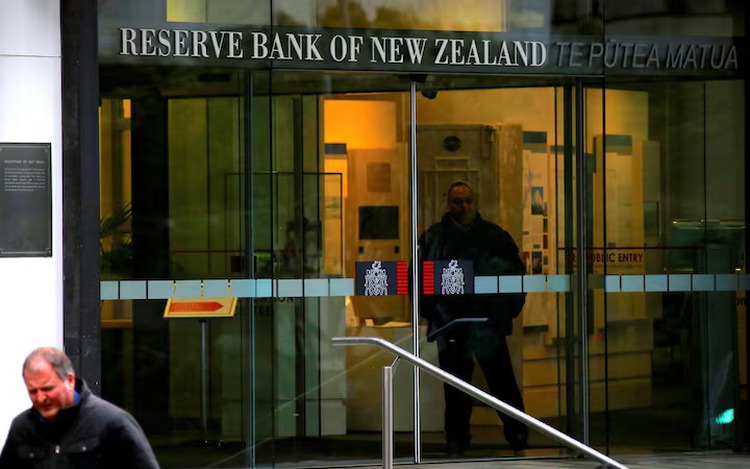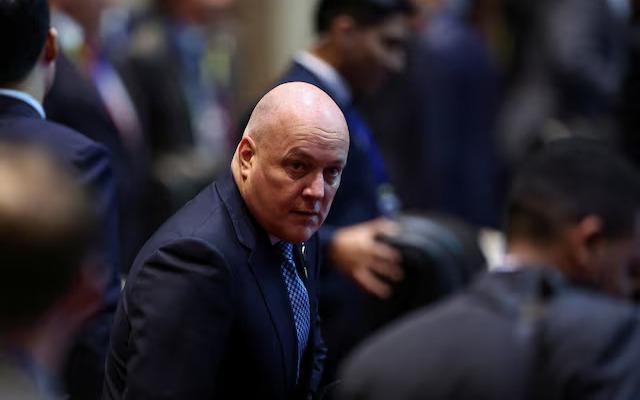
Pedestrians walk past as a security guard stands in the main entrance to the Reserve Bank of New Zealand located in central Wellington, New Zealand, July 3, 2017. Photo: Reuters
Geopolitical risks have escalated following U.S. tariffs on goods imports from many countries, including New Zealand, Reserve Bank of New Zealand (RBNZ) Governor Christian Hawkesby said in the Financial Stability Report.
These developments have heightened financial market volatility and pose a material risk to global economic activity, the report said.
“While the global economic environment has become more volatile, our financial institutions are in a strong position to support the economy,” Hawkesby said.
The statement said banks have strong capital and liquidity buffers in place to maintain credit flows even if conditions deteriorate further. They also remain profitable, with non-performing loans expected to decline as mortgage rates reprice lower.
While New Zealand moved out of recession in the fourth quarter of last year, the economy remains soft and sentiment weak. Data due to be released later on Wednesday is expected to show that unemployment has risen to 5.3 percent.
The central bank said domestically, economic activity remains subdued as previously high interest rates, rising unemployment and a weak housing market continue to weigh on demand.
“However, lower borrowing costs and high agricultural export prices are supporting debt serviceability,” it added.
The RBNZ has cut the cash rate by 200 basis points since August last year to 3.5 percent as it tried to prop up the economy and is expected to cut further this year.
The central bank said that geopolitical risks have escalated, particularly following the United States' imposition of sweeping tariffs on goods imports from many countries, including New Zealand.
“These developments have heightened financial market volatility and pose a material risk to global economic activity,” it said.



Max: 1500 characters
There are no comments yet. Be the first to comment.